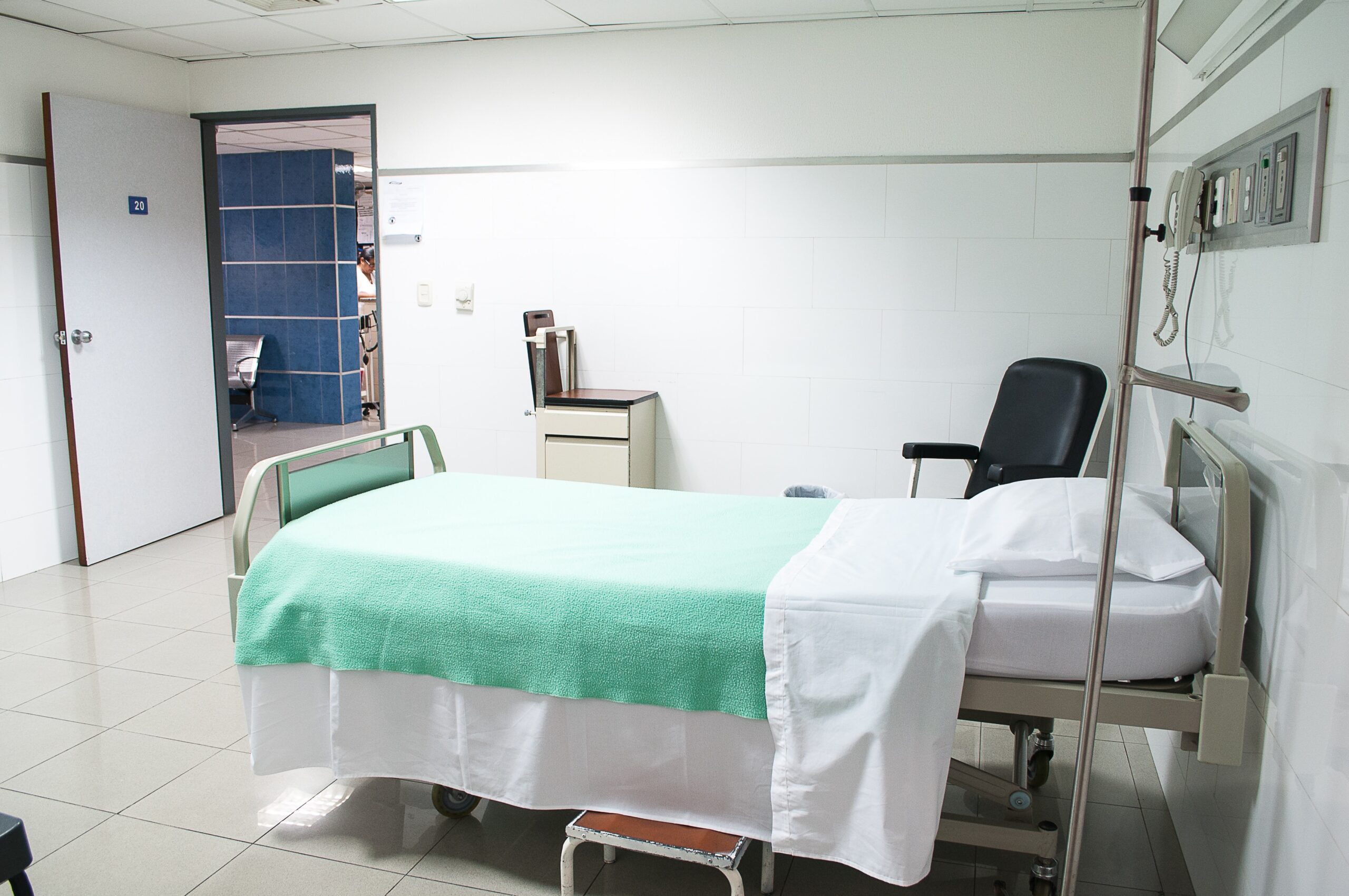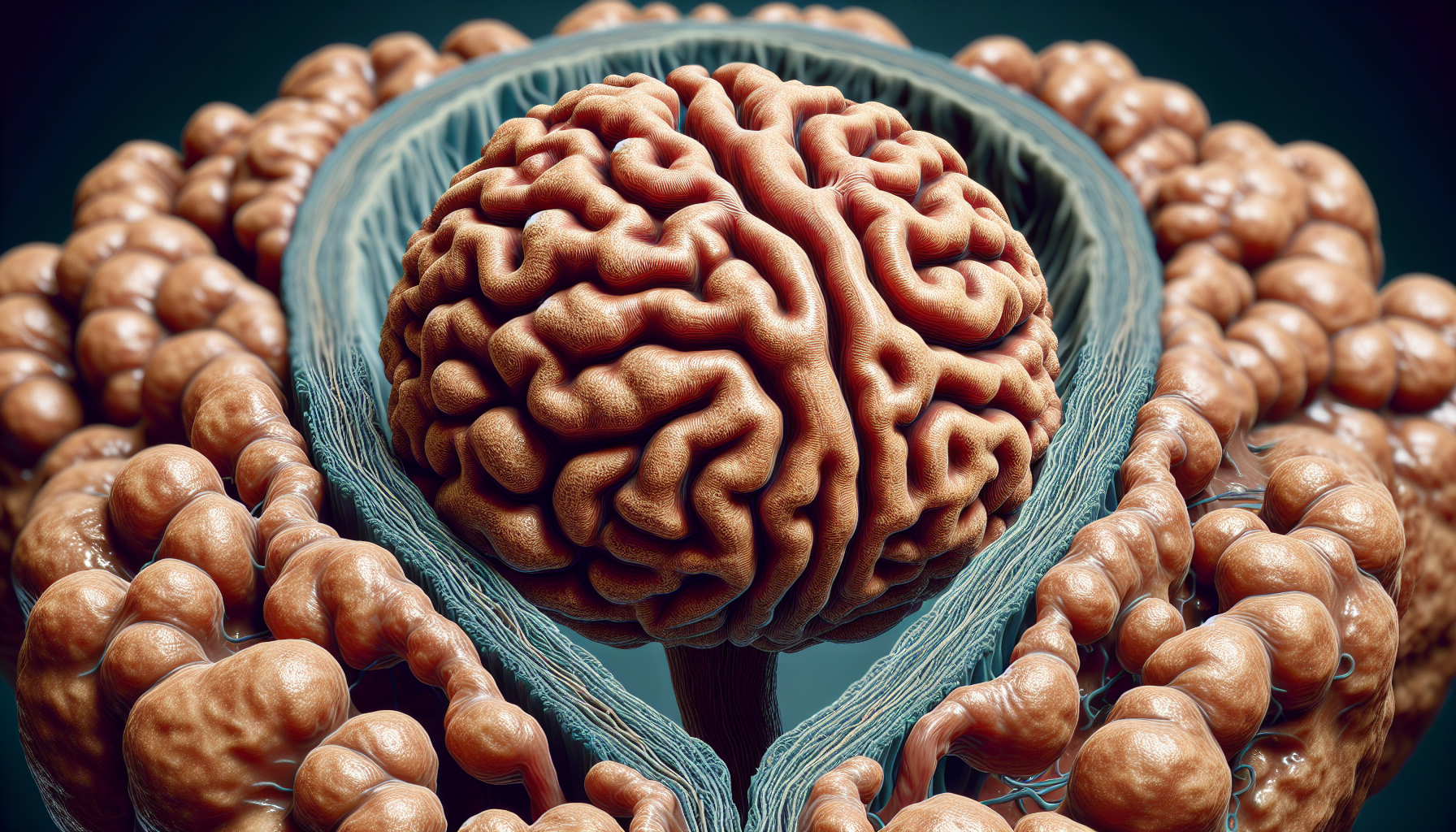Have you ever wondered about the connection between prostate problems and urinary symptoms? It's a topic that may pique your curiosity, especially if you or someone you know has experienced any issues in this area. Understanding the link between the two can provide valuable insights into potential health concerns and help you navigate any related challenges effectively. In this article, we will explore the connection between prostate problems and urinary symptoms, shedding light on the relationship and offering an informative perspective on this important subject. So, let's dive right in and discover what lies beneath the surface!

Understanding the Prostate Gland
The prostate gland is a small, walnut-sized organ that is part of the male reproductive system. Located just below the bladder and in front of the rectum, it surrounds the urethra, the tube that carries urine from the bladder out of the body.
The primary function of the prostate gland is to produce and secrete seminal fluid, which nourishes and protects sperm during ejaculation. This fluid, when combined with sperm from the testicles, forms semen. The prostate gland also plays a crucial role in regulating urine flow by contracting and releasing muscles that control the opening and closing of the urethra.
Types of Prostate Problems
Prostatitis
Prostatitis refers to the inflammation of the prostate gland and is classified into four categories: acute bacterial prostatitis, chronic bacterial prostatitis, chronic prostatitis/chronic pelvic pain syndrome (CPPS), and asymptomatic inflammatory prostatitis. The symptoms of prostatitis may include pain or discomfort in the lower abdomen or genital area, difficulty urinating, frequent urination, and pain or burning during urination.
Benign Prostatic Hyperplasia (BPH)
Benign Prostatic Hyperplasia, also known as BPH, is a non-cancerous enlargement of the prostate gland that commonly affects older men. As the prostate gland expands, it can compress the urethra, leading to urinary symptoms such as weak urine flow, difficulty starting and stopping urination, frequent urination, increased urgency, and the feeling of incomplete bladder emptying.
Prostate Cancer
Prostate cancer is a malignant tumor that develops in the prostate gland. It is one of the most common cancers in men. While early-stage prostate cancer may not cause noticeable symptoms, advanced prostate cancer can cause urinary symptoms such as weak urine flow, blood in the urine or semen, erectile dysfunction, pain or discomfort in the pelvic area, and bone pain.
Understanding Urinary Symptoms
Types of Urinary Symptoms
Urinary symptoms associated with prostate problems can manifest in various ways. Common urinary symptoms include increased frequency of urination, urgency (a sudden and compelling need to urinate), weak urine flow, difficulty initiating or maintaining urination, dribbling at the end of urination, nocturia (frequent nighttime urination), and a sensation of incomplete bladder emptying.
Normal Urination Process
Under normal circumstances, the urinary system efficiently removes waste products and excess fluid from the body. The process begins with the kidneys filtering waste products from the blood and creating urine. The urine then travels through the ureters to the bladder, where it is stored until it is eventually expelled through the urethra during urination.
Potential Causes of Urinary Symptoms
Urinary symptoms associated with prostate problems can arise from various causes. In the case of prostatitis, inflammation in the prostate gland can lead to irritation of the bladder and urethra, causing urinary symptoms. For BPH, the enlargement of the prostate gland can obstruct the urethra, interfering with the normal flow of urine. In prostate cancer, the tumor can also impede urine flow, leading to urinary symptoms.
Link between Prostate Disorders and Urinary Symptoms
How Prostate Disorders can Lead to Urinary Symptoms
Prostate disorders can lead to urinary symptoms primarily due to the physical obstruction or irritation of the urinary system caused by the affected prostate gland. In the case of BPH, the enlarged prostate gland compresses the urethra, restricting the flow of urine. Similarly, prostatitis can cause irritation and inflammation of the bladder and urethra, resulting in urinary symptoms. In prostate cancer, the tumor can obstruct the urethra or spread to other parts of the urinary system, leading to urinary symptoms.
Direct and Indirect Effects on Urinary System
Prostate disorders can have both direct and indirect effects on the urinary system. The direct effect occurs when the enlarged prostate gland physically obstructs the urethra, leading to urinary symptoms. Indirect effects may include inflammation or irritation of the bladder and urethra due to prostatitis or the potential spread of prostate cancer to other parts of the urinary system. These effects can disrupt the normal functioning of the urinary system and result in urinary symptoms.
Urinary Symptoms as Early Warning Signs of Prostate Disorders
Common Urinary Symptoms Linked to Prostate Disorders
It is important to recognize the common urinary symptoms that may indicate the presence of prostate disorders. These symptoms include increased frequency of urination, urgency, weak urine flow, difficulty initiating or maintaining urination, and a sensation of incomplete bladder emptying. While these symptoms can also be caused by other conditions, their persistence or worsening should raise concern for prostate-related problems.
Importance of Early Detection and Diagnosis
Early detection and diagnosis of prostate disorders are crucial for effective treatment and management. Detecting prostate problems at an early stage enables healthcare professionals to intervene promptly, potentially preventing the progression of the condition and its associated complications. By recognizing urinary symptoms as early warning signs, individuals can seek medical advice and undergo appropriate diagnostic tests to identify and address any underlying prostate disorders.
Diagnosis of Prostate Disorders and Urinary Symptoms
Urinalysis
Urinalysis is a commonly used diagnostic test that involves analyzing a sample of urine. This test can help detect various abnormalities such as infection, inflammation, or the presence of blood in the urine. By assessing the components of the urine, including red and white blood cells, proteins, and bacteria, healthcare professionals can gain insights into the possible causes of urinary symptoms.
Physical Examination
During a physical examination, a healthcare professional may perform a digital rectal examination (DRE) to assess the size, shape, and consistency of the prostate gland. This involves the insertion of a gloved, lubricated finger into the rectum to feel the back portion of the prostate. The DRE can provide valuable information about the prostate, potentially indicating the presence of abnormalities, such as an enlarged prostate or suspicious nodules.
Prostate-Specific Antigen (PSA) Test
The prostate-specific antigen (PSA) test is a blood test that measures the level of PSA, a protein produced by the prostate gland, in the bloodstream. Elevated levels of PSA can indicate the presence of prostate conditions, such as prostatitis, BPH, or prostate cancer. However, it is important to note that an elevated PSA level does not conclusively indicate the presence of cancer and further evaluation, such as a biopsy, may be required for accurate diagnosis.

Management of Urinary Symptoms caused by Prostate Problems
Watchful Waiting
In certain cases, especially for mild or early-stage prostate disorders, a healthcare professional may recommend a period of watchful waiting or active surveillance. This approach involves closely monitoring the condition without immediate medical intervention. Regular check-ups and monitoring of symptoms are essential during this period to ensure timely intervention if the condition worsens.
Medication
Medications can be prescribed to alleviate urinary symptoms associated with prostate problems. For example, alpha-blockers relax the muscles in the prostate and bladder neck, improving urine flow. 5-alpha reductase inhibitors can help shrink an enlarged prostate, relieving urinary symptoms over time. Antibiotics may be prescribed for cases of prostatitis to treat any underlying bacterial infection and reduce inflammation.
Surgery
In more severe cases or when other management options are not effective, surgery may be recommended. Surgical interventions for prostate problems include transurethral resection of the prostate (TURP), where excess prostate tissue is removed, or in some cases, a complete removal of the prostate gland (prostatectomy). These procedures aim to alleviate obstruction, improve urinary flow, and address the underlying cause of the urinary symptoms.
Preventing Prostate Problems and Urinary Symptoms
Lifestyle Changes
Adopting a healthy lifestyle can contribute to the prevention of prostate problems and urinary symptoms. Engaging in regular physical activity, maintaining a balanced diet, managing stress levels, and avoiding smoking and excessive alcohol consumption can help reduce the risk of developing prostate disorders. These lifestyle changes promote overall health and may have a positive impact on prostate health as well.
Regular Screening
Regular screening for prostate disorders, especially for individuals at higher risk, such as those with a family history of prostate cancer or advanced age, is essential. Screening typically involves a combination of a digital rectal examination (DRE) and a prostate-specific antigen (PSA) test. Early detection of any abnormalities allows for timely medical intervention and management, potentially preventing the development of severe urinary symptoms or complications.
Medication for High-Risk Individuals
For individuals at a higher risk of developing prostate problems, such as those with a strong family history of prostate disorders, certain medications may be prescribed as a preventive measure. Medications such as 5-alpha reductase inhibitors can help reduce the risk of developing an enlarged prostate or prostate cancer. However, it is important to consult with a healthcare professional before initiating any preventive medication to assess individual risk factors and potential benefits.
Potential Complications of Prostate Disorders and Urinary Symptoms
Urinary Retention
Urinary retention refers to the inability to empty the bladder completely or at all. It can occur due to the physical obstruction of the urethra caused by an enlarged prostate or can result from muscular dysfunction in the bladder. Urinary retention can cause discomfort, increase the risk of urinary tract infections, and lead to more severe complications if not managed promptly.
Stone Formation in the Bladder
Prostate disorders associated with urinary symptoms can increase the risk of stone formation in the bladder. Urine retention caused by an obstructed urinary system creates an environment conducive to the development of bladder stones. These stones can cause pain, discomfort, and further interfere with normal urine flow, exacerbating urinary symptoms.
Kidney Damage
If left untreated or poorly managed, prostate disorders and their associated urinary symptoms can lead to kidney damage. Obstruction of the urinary system, recurrent urinary tract infections, or severe urinary retention can cause a backflow of urine into the kidneys, leading to damage or infection. Kidney damage can have serious implications on overall health and may require medical intervention, such as surgical interventions or dialysis, to manage the condition.
Significance of Patient Education on Prostate Problems and Urinary Symptoms
Patient Awareness
Patient education plays a vital role in empowering individuals with the knowledge to recognize potential prostate problems and urinary symptoms. By being aware of the possible signs and symptoms, individuals can seek timely medical advice and undergo appropriate screening tests, facilitating early detection and intervention. Education enables individuals to take an active role in maintaining their own health and well-being.
Encouraging Early Diagnosis
Through patient education, individuals can understand the importance and benefits of early diagnosis in managing prostate disorders and urinary symptoms effectively. By recognizing the significance of regular screening and seeking medical attention at the onset of urinary symptoms, individuals can optimize their chances of receiving prompt and tailored medical interventions, potentially preventing the progression of the condition and reducing the risk of complications.
Importance of Medical Consultation
Patient education emphasizes the importance of seeking medical consultation when experiencing urinary symptoms or suspecting prostate problems. Healthcare professionals are equipped with the knowledge and expertise to accurately diagnose and manage these conditions. By consulting with a healthcare professional, individuals can receive personalized advice and access appropriate diagnostic and treatment options, ensuring optimal care for their specific needs.
In conclusion, understanding the link between prostate problems and urinary symptoms is essential for recognizing the signs, seeking timely medical attention, and receiving appropriate care. By familiarizing oneself with the anatomy, function, and common disorders of the prostate gland, individuals can make informed decisions about their health and well-being. Recognizing urinary symptoms as potential early warning signs of prostate disorders and understanding the diagnostic and management options available can significantly impact the prevention, detection, and treatment of these conditions. Through patient education, individuals can take an active role in their own healthcare, promoting early diagnosis, and paving the way for optimal outcomes.




